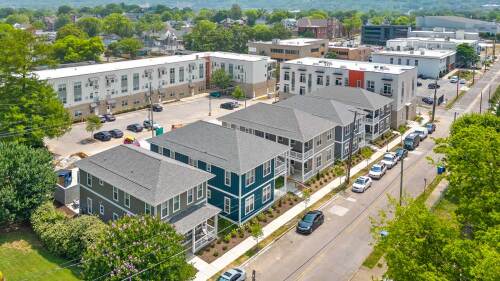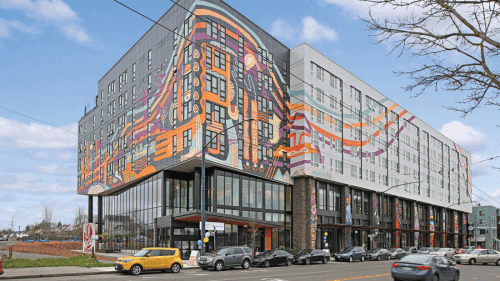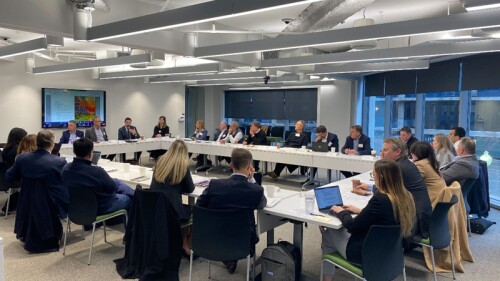Best Practices
Learn from Urban Land’s Best Practices with expert case studies, award-winning projects, and proven real estate strategies
In the Belgian municipality of Edegem, a 20-minute bike ride from Antwerp’s city center, a camera film roll packing plant has become Minerve, a biodiverse, sustainable mixed-use residential and commercial neighborhood.
Five new case studies that meet the criteria have been selected as the Terwilliger Center’s 2025 award winners: Market Street Village in San Diego, Sendero Verde in New York City, The Aster in Salt Lake City, The Kelsey Ayer Station in San José, and The Wilder in Nashville. Each of them offers an important, in-depth look at the financing structures, development strategies, community partnerships, and public policies that make such ambitious projects viable.
The ULI Americas District Council Showcase of Excellence Awards celebrates achievement by District Councils as it relates to ULI’s mission and primary areas of focus, with particular attention given to programs that are both innovative in their format or approach to the subject matter and replicable at other District Councils. The ULI Americas region’s 58 District Councils submit the best of more than 2,000 programs held each year, with awards given, in each category, for District Councils with fewer than 600 members, and for District Councils with more than 600 members.
Singapore real estate veterans at a Women’s Leadership Initiative (WLI) event last month suggested that finding your own voice, challenging yourself, and not over-planning can help women in the industry to progress in interesting and worthwhile careers.
The ULI Terwilliger Center for Housing has announced two winners for this year’s Jack Kemp Excellence in Affordable and Workforce Housing Award, as well as two winners for the Terwilliger Center Award for Innovation in Attainable Housing.
For more than four decades, the Urban Land Institute has identified excellence in real estate and land use through awards that highlight projects and people. All these programs rely on the contributions of ULI members who donate their time and expertise as jurors and, often, cover the cost of their travel to support the awards.
As creative placemaking has proliferated in the real estate industry, questions regarding its costs and benefits have often surfaced: What is the cost and what is the business case? Does it enhance the value of real estate? And what value is delivered?
San Francisco can create a more commercially vibrant and socially inclusive downtown that attracts a diverse range of industries and employers, advances housing attainability, and promotes stronger leadership, according to findings released by ULI.
While private infrastructure can help to fill many gaps where municipal budgets are constrained and standards for safety and accessibility can be maintained, it can come with challenges as well. Where are private streets most feasible and effective, how does context matter, and what policies can ensure that they are done right?
The first ULI Executive Convening on Embodied Carbon—held on January 17th at ULI’s headquarters in Washington, D.C., and hosted by ULI’s Decarbonization Program—launched the first of many convenings to build stronger partnerships across the industry enabling accelerated advancement on sustainability improvements and beyond.
ULI has selected architect Hans Papke as the recipient of the 2021–2022 Apgar Thought Leader Award, which recognizes the authors of outstanding written works for Urban Land.
As we close the books on 2022, we look back on the topics that resonated most with the online readers of Urban Landin the past year.
















